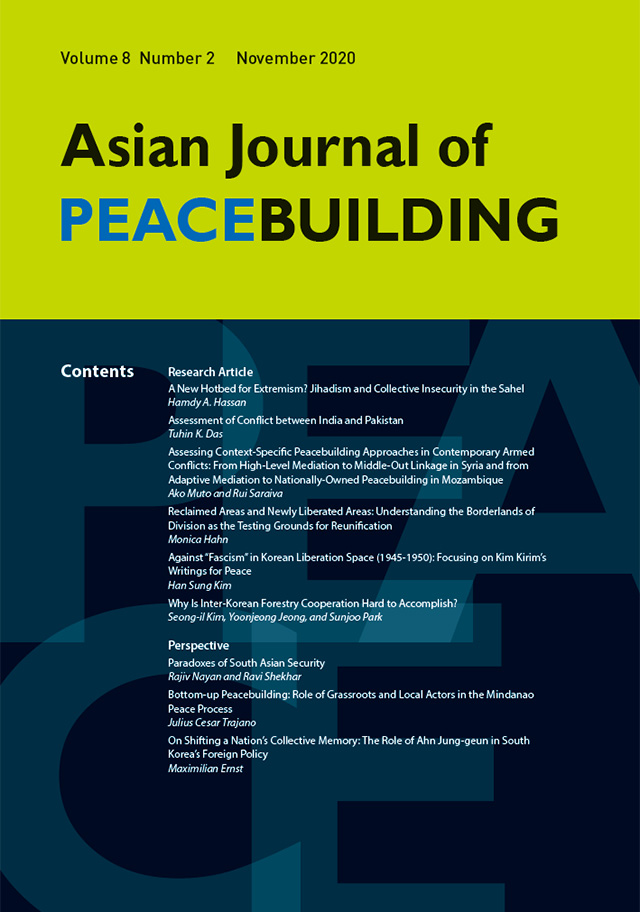As contemporary armed conflicts become increasingly complex, peacebuilding actors have been unable to prevent or respond effectively to related crises. Considering the policy trends evoked by the United Nations sustaining peace agenda and contextspecific peacebuilding theories, this article examines peacebuilding initiatives amid complex contexts in Syria and Mozambique. It argues that the adaptive approaches of the National Agenda for the Future of Syria and the architecture of the negotiations surrounding the new peace process in Mozambique represent examples of contextspecific, innovative, and non-linear peacebuilding methods that foster the selforganization capabilities of the respective conflict-affected societies. It concludes by asserting that through pragmatism, local and national ownership, and process facilitation, there is an increased potential for the effectiveness of peacebuilding interventions in complex conflict-affect situations.
Back Issues
Research Article
Assessing Context-Specific Peacebuilding Approaches in Contemporary Armed Conflicts: From High-Level Mediation to Middle-Out Linkage in Syria and from Adaptive Mediation to Nationally-Owned Peacebuilding in Mozambique
Ako Muto and Rui Saraiva pp. 241-264
PDF Download

